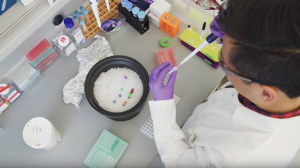NEW YORK (Reuters Health) – High intake of saturated and monounsaturated fat may increase the risk of pancreatic cancer, according to a report in the Journal of the National Cancer Institute for July 15 issued online June 26.
Intake of saturated fats from animal food sources showed the strongest association with pancreatic cancer, increasing the risk of the malignancy by 43% (p < 0.001). Consumption of red meat and dairy products increased the odds of pancreatic cancer by 27% and 19%, respectively.
Although a few reports have identified fat intake as a risk factor for pancreatic cancer, others have failed to show an association, note Dr. Rachael Z. Stolzenberg-Solomon, from the National Institutes of Health, Bethesda, Maryland, and colleagues. To better understand the relationship, if any, the researchers analyzed data from the NIH-AARP Diet and Health Study.
The study cohort comprised 308,736 men and 216,737 women who completed a food frequency questionnaire from 1995 to 1995. During an average follow-up period of 6.3 years, 865 men and 472 women developed pancreatic cancer.
Consumption of total fat, saturated fat, and monounsaturated fat were all significantly linked to pancreatic cancer with hazards ratios of 1.23, 1.36, and 1.22, respectively, comparing the highest quintile of intake with the lowest. Intake of polyunsaturated fat, by contrast, did not increase the risk.
As mentioned, fats of animal origin conferred the highest risk. According to a related editorial, however, the jury is still out on whether animal fat intake gives rise to pancreatic cancer.
“This well-performed prospective cohort study is a welcome addition to our understanding of a disease that is in great need of new insights,” Dr. Brian M. Wolpin and Dr. Meir J. Stampfer, from Harvard Medical School, Boston, write. “However, the available epidemiological and laboratory evidence are insufficient to confirm the importance of animal fats, per se, or even that meat is the important factor, as opposed to other dietary or lifestyle preferences associated with meat consumption.”
Reference:
J Natl Cancer Inst 2009;101:972-973,1001-1011.




